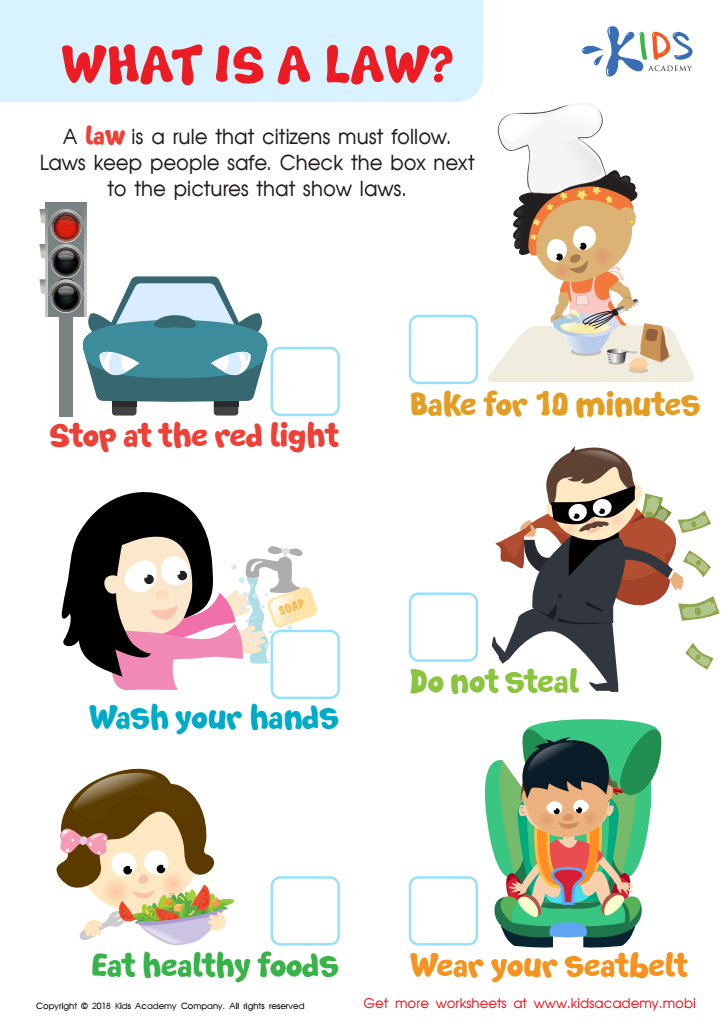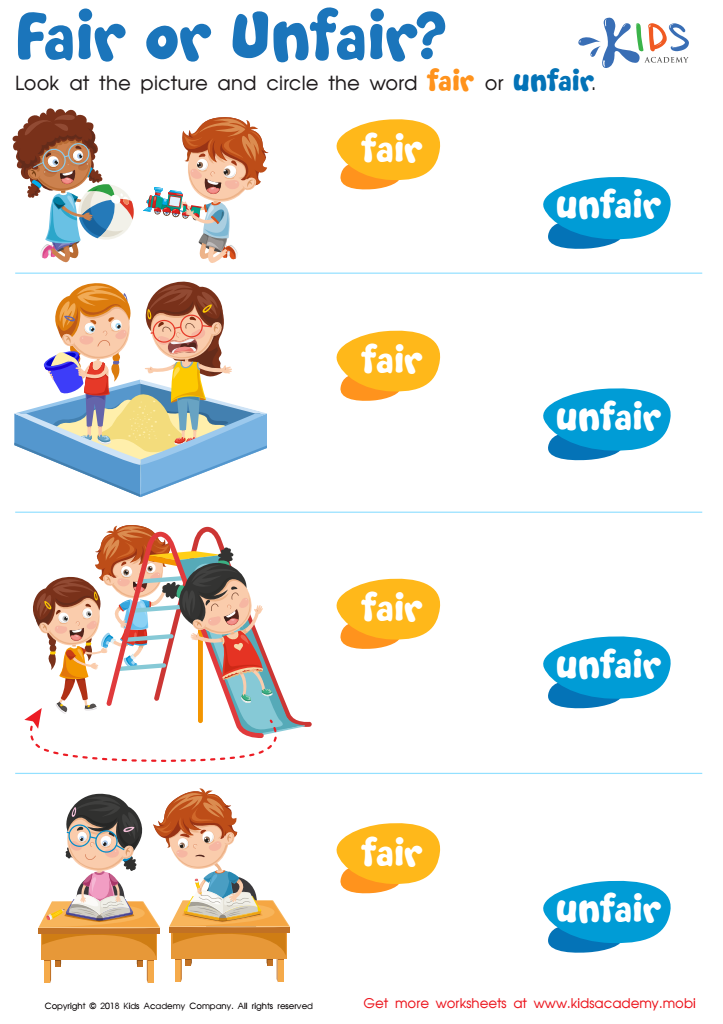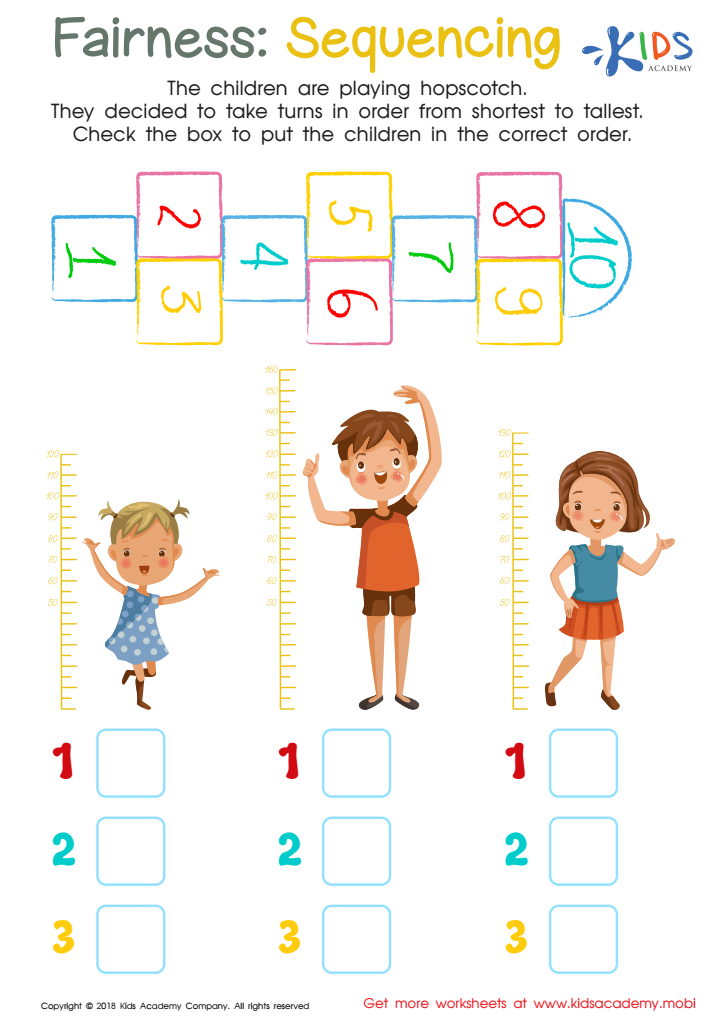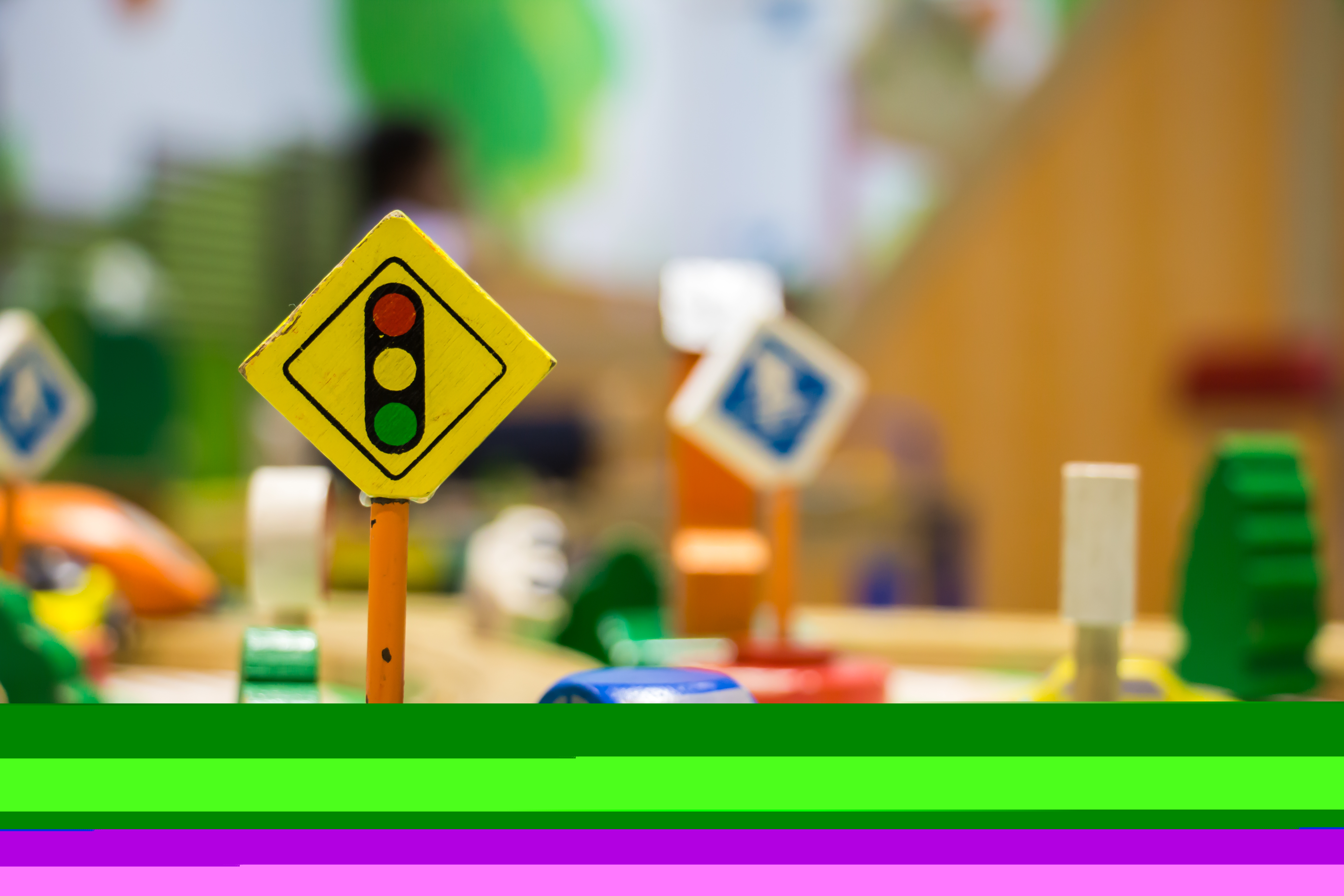Critical Thinking Community Worksheets for Ages 4-5
4 filtered results
-
From - To
Introducing our engaging Critical Thinking Community Worksheets designed specifically for children ages 4-5. These interactive worksheets promote essential cognitive skills through fun activities that encourage young learners to think critically about their community. Ideal for early educators and parents, these worksheets cover various topics that help children recognize relationships, solve problems, and make connections with their surroundings. By incorporating engaging visuals and age-appropriate exercises, our worksheets support developmental growth while fostering curiosity and creativity. Explore our collection today to inspire young minds to understand their community better and enhance their critical thinking abilities in a playful learning environment!


What is a Law? Worksheet


Fair or Unfair Worksheet


What Do Teachers Need Worksheet


Fairness: Sequencing Worksheet
Parents and teachers should care about the Critical Thinking Community for Ages 4-5 because this early stage of development is crucial for nurturing a child’s cognitive skills. At this age, children are naturally curious and eager to explore the world around them. Providing them with a structured environment that encourages critical thinking fosters important skills such as problem-solving, creativity, and decision-making.
Engaging in critical thinking activities helps young learners develop the ability to analyze situations, ask questions, and think independently. It equips them with tools to understand complex ideas and build a foundation for lifelong learning. By being part of a Critical Thinking Community, parents and teachers can support collaborative learning experiences where children learn from each other, fostering social skills and emotional intelligence.
Moreover, this community promotes an inclusive approach that can benefit children of diverse backgrounds and abilities. Encouraging critical thinking from an early age prepares children to navigate future academic challenges confidently. It also empowers them to articulate their thoughts clearly and explore different perspectives, cultivating a mindset of respect and open-mindedness. Ultimately, by prioritizing critical thinking in early education, parents and teachers are investing in a child’s long-term success and well-rounded development.
 Assign to My Students
Assign to My Students






















